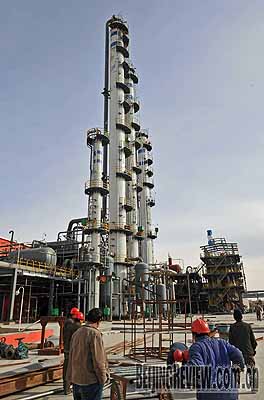|
|
 |
|
CIRCULAR ECONOMY: An industrial park featuring sustainable circular economic development was established in Taiyangshan Development Zone in Ningxia Hui Autonomous Region last year | The Chinese Government has approved investing up to 100 billion yuan ($14.64 billion) in environmental projects as part of its overall 4-trillion-yuan ($586-billion) stimulus package created last November to cushion the impact of the financial turmoil.
At the end of last year, all related ministries said that as part of the new spending plan, they would not reconsider projects that would produce high amounts of pollution and consume excessive amounts of energy, which the National Development and Reform Commission (NDRC), the country's top economic planner, previously had rejected.
The NDRC and the Ministry of Finance are responsible for the Central Government's financial investments. On December 22, they announced the 100-billion-yuan investment as the first part of the stimulus package. The spending plan prohibits investments in high-pollution and high energy-consuming industries or low-level redundant construction and industries with excessive production capacities.
Liu Jiayi, Auditor General of the National Audit Office of China (NAOC), said on December 29 that his office would investigate and audit all new projects, especially those with high pollution, excessive energy consumption and surplus productivity, as well as projects in violation of relevant regulations.
|
